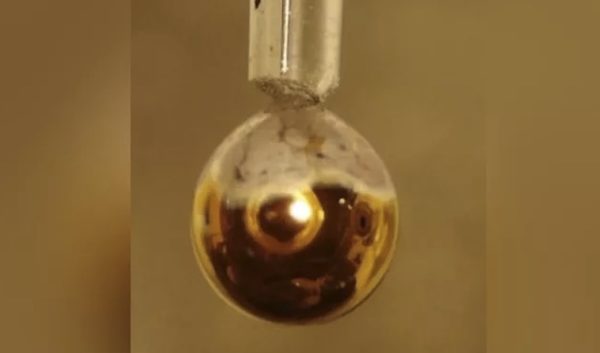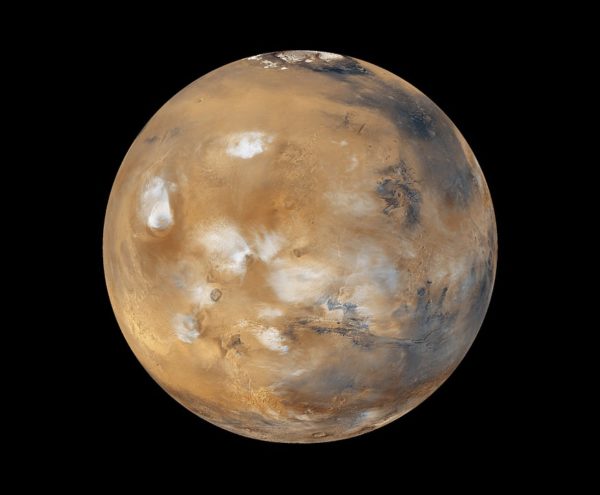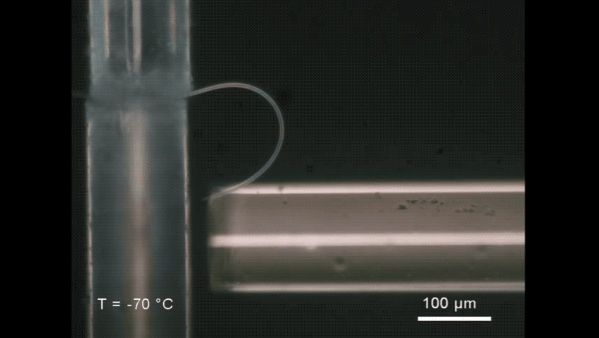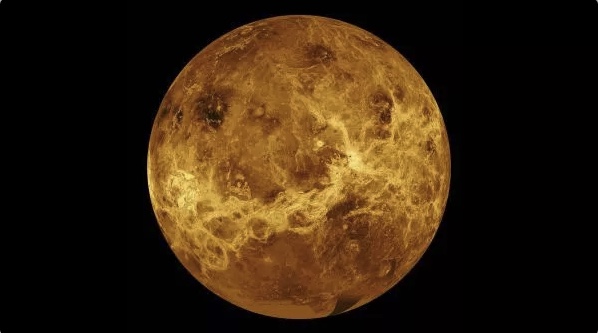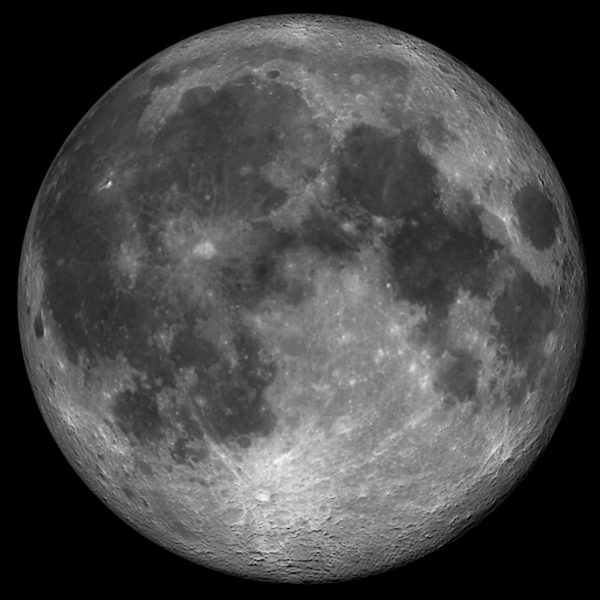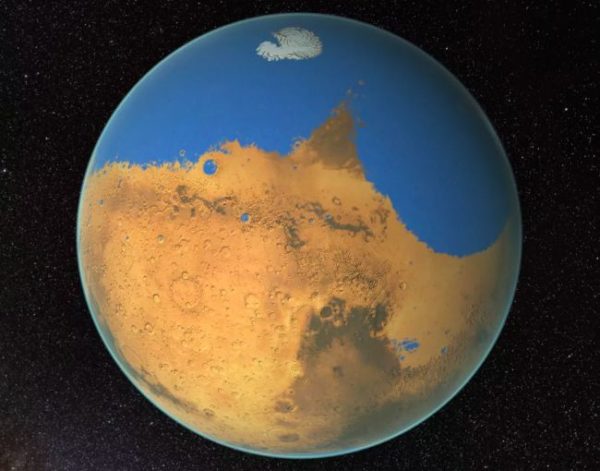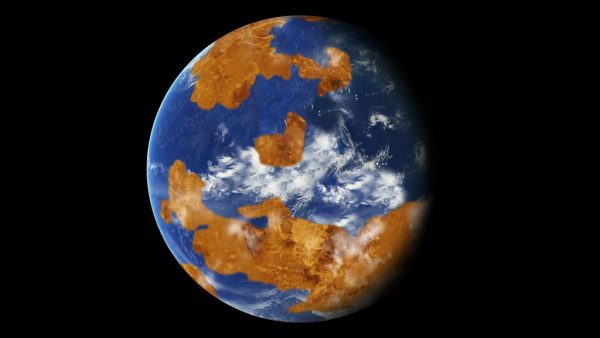water
Scientists Make Metallic Water
In a mind-bending experiment, scientists transformed purified water into metal for a few fleeting seconds, thus allowing the liquid to conduct electricity. Unfiltered water can already conduct electricity — meaning negatively charged electrons can easily flow between its molecules — because unfiltered water contains salts, according to a statement about the new study. However, purified water contains only water molecules, whose outermost electrons remain bound to their designated atoms, and thus, they can’t flow freely through the water. Theoretically, if one applied enough pressure to pure water, the water molecules would squish together and their valence shells, the outermost ring … Read more
SPACE: Are Buried Martian “Lakes” Just Frozen Clay?
Bright reflections that radar detected beneath the south pole of Mars may not be underground lakes as previously thought but deposits of clay instead, a new study finds. For decades, scientists have suspected that water lurks below the polar ice caps of Mars, just as it does here on Earth. In 2018, researchers using the MARSIS radar sounder instrument on the European Space Agency’s Mars Express spacecraft detected evidence for a lake hidden beneath the Red Planet’s south polar ice cap, and in 2020, they found signs of a number of super-salty lakes there. If these lakes were remnants of … Read more
Science Brings Us Super Bendy Ice!
Ice is stiff and brittle — if you bend it, it will snap in two. Right? Not quite. Researchers just found that when grown in tiny strands, ice can defy its reputation for breakability, becoming so elastic it can even bend into a loop, according to a new study. These ice microfibers are so bendy that they are near the theoretical limit for ice elasticity. Perhaps even cooler, the scientists who grew the bendy ice think that their teensy ice strands could lead to both an avalanche of new ways to better understand ice in its natural state and more … Read more
SPACE: Water-Based Life Extremely Unlikely On Venus
The amount of water in the atmosphere of Venus is so low that even the most drought-tolerant of Earth’s microbes wouldn’t be able to survive there, a new study has found. The findings seem to wipe out the hope stirred by last year’s discovery of molecules potentially created by living organisms in the scorched planet’s atmosphere that were seen as an indication of the possible presence of life. The new study looked at measurements from probes that flew through the atmosphere of Venus and acquired data about temperature, humidity and pressure in the thick sulfuric acid clouds surrounding the planet. … Read more
MARS: Are There Dozens of Lakes Buried on Mars?
Much more liquid water may lie beneath the south pole of Mars than scientists had thought — or there may be something going on down there that they don’t fully understand. In 2018, researchers analyzing radar data gathered by Europe’s Mars Express spacecraft announced they’d found evidence of a big subsurface lake in the Red Planet’s south polar region. The lake appears to be about 12 miles (19 kilometers) wide, and it lies about 1 mile (1.6 km) beneath the dry, frigid surface, the scientists reported. The same core research team soon followed up on the find, using the same … Read more
SPACE: Water on the Moon
For the first time ever, scientists have identified water on the moon’s sunlit surface. They also found that water is more common on the moon than previously thought, with pockets of ice hiding in shadowy regions of “eternal darkness,” some as small as a penny, new studies reveal. Scientists have been finding signs of water on the moon since 2009 and, in 2018, confirmed the presence of water ice on the lunar surface. Now, researchers in two new studies have detected water at one of the largest crater formations on a sunlit surface on the moon and also found that … Read more
Does Mars Have Hidden Underground Lakes?
Remnants of water once found on the surface of Mars may be hidden in a handful of small lakes below the Red Planet’s south pole, and more could exist, according to new research. For decades, researchers have suspected that water lurks below the polar icecaps of Mars, just as it does here on Earth. In 2018, scientists detected evidence for such a reservoir on the Red Planet — signs of a lake about 12 miles (19 kilometers) across and hidden below about a mile (1.5 km) of ice at the south pole of Mars. At the time, the researchers said … Read more
SPACE: Was Venus Once a Paradise?
Venus, our solar system’s broiling, radiation-bombarded, sulfuric-acid-raining, toxic hellscape of a planet, may once have hosted vast oceans … and could have been rather nice, actually. In fact, a water-covered and life-friendly Venus possibly persisted for as long as 3 billion years, scientists recently reported. But that idyllic time in Venus’ past ended abruptly between 700 million and 750 million years ago, when a near-planet-wide release of carbon dioxide (CO2) stored in surface rocks disrupted the planet’s atmosphere and triggered its transformation to the “hellish hothouse” that we know today, researchers said in a statement. Venus and Earth could be … Read more
SPACE: Did Astronomers Just Find Another Earth?
In a major first, scientists have detected water vapor and possibly even liquid water clouds that rain in the atmosphere of a strange exoplanet that lies in the habitable zone of its host star about 110 light-years from Earth. A new study focuses on K2-18 b, an exoplanet discovered in 2015, orbits a red dwarf star close enough to receive about the same amount of radiation from its star as Earth does from our sun. Previously, scientists have discovered gas giants that have water vapor in their atmospheres, but this is the least massive planet ever to have water vapor … Read more




